 |
G.B.C. water mate Italy ~1980 |
 |
 Italiano
Italiano |
English
 |
||
 G.B.C. mod. "water mate" - Italia ~1980.
G.B.C. mod. "water mate" - Italia ~1980.Il Water Mate era un ricevitore portatile "resistente all'acqua" probabilmente fatto costruire in Taiwan, aveva ricezione in onde medie e modulazione di frequenza, il circuito supereterodina con 2 transistor 2SC1417 e un circuito integrato TA7613AP che incorporava: l'amplificatore RF AM, La Frequenza Intermedia AM/FM, il rivelatore AM/FM, il Controllo Automatico di Guadagno AM, il Controllo Automatico di Frequenza FM e l'amplificatore di Bassa Frequenza in classe C. Il mobiletto era in plastica con guarnizioni per la "tenuta" all'acqua e cinghia per il trasporto. Ovviamente la resistenza alle infiltrazioni dell'acqua era pressoché simbolica, ma la radio andava bene se veniva utilizzata per ascoltare musica e notizie in spiaggia seduti su una comoda sdraio osservando la gente che faceva il bagno. L'altoparlante era da 8 Ohm con il cono di plastica trasparente e l'alimentazione avveniva tramite una batteria da 9V tipo transistor. © IK3HIA, 2004 |
|||
|
|
|||
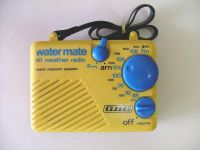 |
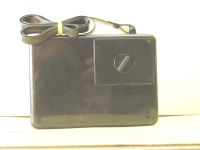 |
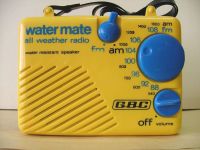 |
|
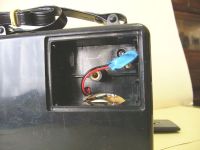 |
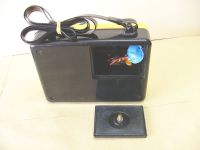 |
||
 G.B.C. mod. "water mate" - Italy ~1980.
G.B.C. mod. "water mate" - Italy ~1980.The Water Mate was a portable "water resistant" receiver probably built in Taiwan, it had medium wave reception and frequency modulation, the superheterodyne circuit with 2 transistors 2SC1417 and a TA7613AP integrated circuit that incorporated: the AM RF amplifier, the AM/FM Intermediate Frequency, the AM/FM detector, the AM Automatic Gain Control, the FM Automatic Frequency Control and the Audio amplifier in class C. The cabinet was made of plastic with gaskets for "sealing" water and a strap for transport. Obviously the resistance to water infiltration was almost symbolic, but the radio was fine if it was used to listen to music and news on the beach sitting on a comfortable deckchair watching people bathing. The speaker was 8 Ohm with a transparent plastic cone and the power supply was via a 9V transistor type battery. © IK3HIA, 2004 |
|||
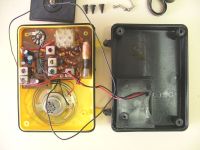 |
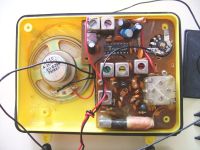 |
||
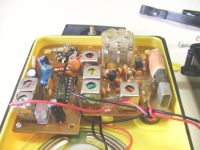 |
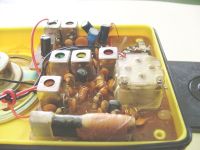 |
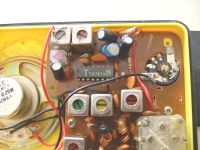
|
|
|
Back to the top of the page >>
|
|||
|
|
Return to: IK3HIA home page |
|
Return to: Transistor Radio |
|
Go to: Transistor diagrams |